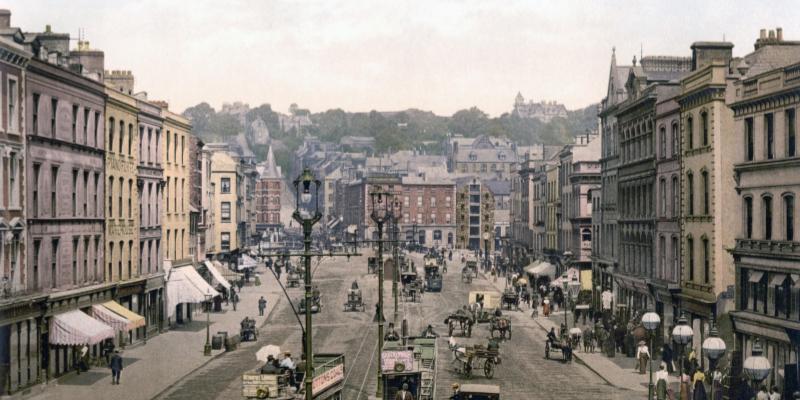In honor of St. Paddy’s Day this weekend, we’ve decided to celebrate the prolific new wave of Irish crime writing. There’s no doubt that crime writing is a popular trade in Ireland—we wouldn’t attempt to create a comprehensive list of Irish crime writers, and as proof of that, here’s a set of recommendations from No Alibis bookstore in Belfast with zero crossovers onto our list (apologies to those on the No Alibis list—you’ll be added to the to-read pile!). Instead, here’s a list of Irish crime writers we enjoy, and that together, represent the incredible diversity of approach to the genre.
From gritty historical noir set in Belfast, to modern procedurals engaging with first world problems, to psychological thrillers exploring the timeless tensions within families and communities, Irish crime writing, like all fiction, works hard to tell a gamut of human stories. Particularly Irish concerns do make their way into many of these stories. They take place in a complex political, historical, and cultural framework that lends itself to certain categories of crime fiction better than others, and aggregate to reflect common concerns mixed with unique, personal stories.
According to Declan Burke writing for the Irish Examiner, “Ireland’s relatively small population means that Irish crime novels have tended more towards the ‘whydunit’—ie, the psychological thriller—rather than the traditional ‘whodunit’.” Contemporary Irish crime writing’s concern with Irish history not only reflects fiction’s part in processing historical trauma, but also, as anyone who reads Scandinavian crime fiction already knows, helps to make a fictional crime more plausible in a nation marked by a low modern-day homicide rate.
While the violence of the Troubles and the legacy of occupation is a common enough subject in Irish crime writing, recently the rise of integrated global capitalism and rapid social change have become just as frequent a subject. Many of the procedurals to come out of Ireland over the past twenty years have directly engaged with the Celtic Tiger economy, through boom and bust. Procedurals in Northern Ireland set today seem almost designed to improve faith in the smooth operation of government agencies, while historical crime fiction set in Northern Ireland tends toward hard-boiled, noir, and even the occasional grand guignol.
With a complex history and distinct regional variations, Irish crime fiction may be better designed for the micro than the macro—much satisfaction can be gained in immersing oneself in the stories of Belfast, as Paul French recently did in his series of crime writing in cities around the world. Every once in awhile, though, it does us well to take a step back and marvel at a thriving scene.
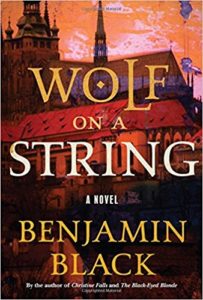
Benjamin Black
Better known in literary circles as John Banville, Black is the Booker Prize winner’s pseudonym for when he wants to publish classic hard-boiled stories that wouldn’t be out of place in mid-century America. He once told the Washington Post, “The real charm of the Irish is evasiveness. Irish writers are best when they’re ambiguous.” And perhaps therein lies the key to Irish crime fiction’s appeal.
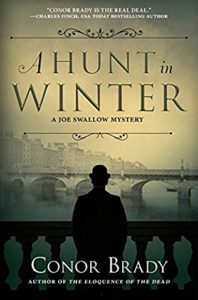
Conor Brady
Brady writes a historical crime series set in turn of the century Ireland. His connections to the Garda, his long tenure as editor of the Irish Times, and his academic research into the history of policing put him in good stead when crafting twisting plots rich in historical detail.
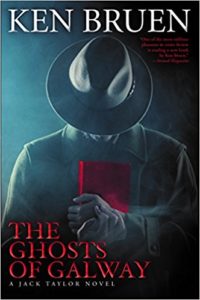
Ken Bruen
If you’re looking for the Mickey Spillane of Ireland, then Ken Bruen’s your man, but with more drugs, less sex, and probably about the same amount of violence. Like that of Gene Kerrigan, Bruen’s work explores the social changes and economic dark side of Ireland’s entrance into the EU.
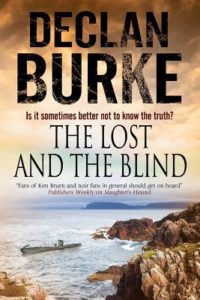
Declan Burke
Both an author and champion of Irish crime writing, Burke works the mystery beat at the Irish Times as well as writing the prolific blog Crime Always Pays. He has published six crime novels, as well as editing three collections, all characterized by his signature dark humor and noir vision.
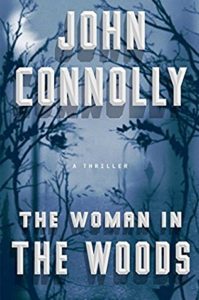
John Connolly
Dublin-born John Connolly’s popular Charlie Parker series may be set in Maine, but what is Maine, anyway, but the Ireland of America? The two share a craggy coastine, a long history of piracy, and literature rather concerned with decaying manor houses (H.P. Lovecraft, Stephen King, Tana French, we’re looking at you). Fans of gothic horror, a genre not out of place in Maine or Ireland, should enjoy Connolly’s blend of crime and supernatural horror.

Sinéad Crowley
Crowley works as a broadcast journalist when she’s not writing crime fiction. Her debut thriller, Can Anybody Help Me, made a splash in the Irish crime writing scene. Her third to feature Detective Claire Boyle comes out this summer in Ireland and the UK, but readers in the US will have to stick with the first two in the series for now. The series merges the procedural with psychological suspense, grounded in a modern Ireland full of information-age dangers.
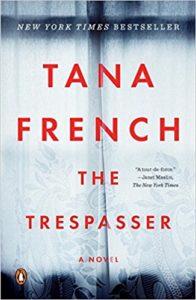
Tana French
Vermont-born, Irish-settled Tana French traveled the world before settling in Dublin. She worked as an actress and came to crime writing as a second career, and perhaps that’s why her stories exhibit such delicate emotional nuance, and why she excels at writing characters playing roles. Tana French’s Dublin Police Squad series uses the procedural to explore macro and micro visions of the Republic, from large societal changes to small human moments.
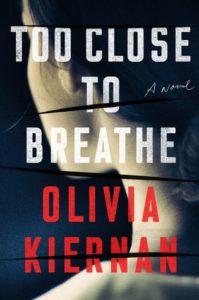
Olivia Kierrnan
Olivia Kiernan was recently dubbed one of Irish writing’s “Bright Young Things” in a roundup from the Irish Times, and we’re looking forward to reading her debut, a moody thriller that begins with a suspicious suicide, when it reaches the States next month.
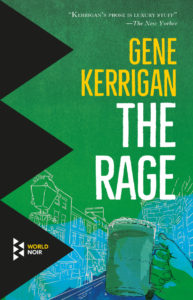
Gene Kerrigan
His work is frequently described as the chronicles of “post-Boom Dublin” and concerns itself with the seedy side of prosperity. Rampant capitalism, criminal masterminds, and petty thieves grace the pages of his Celtic Tiger sagas, for the closest voice Ireland has to James Ellroy.
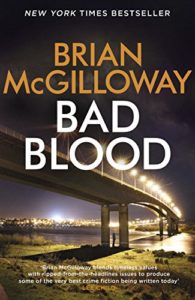
Brian McGilloway
Brian McGilloway is originally from Derry and today lives in what his bio vaguely describes as “the borderlands” with his family. His work encompasses the two main threads of Northern Irish crime fiction. His Inspector Benedict Devlin series is set along the border and concerned with the history of The Troubles, while his DI Lucy Black series deals with more contemporary issues in Ireland today, including homophobia, human trafficking, pollution, and a host of other modern ills.
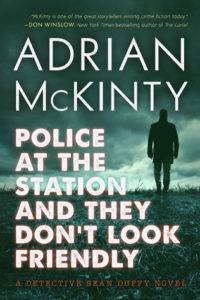
Adrian McKinty
Having justly gained wide-spread acclaim for his Sean Duffy series, McKinty has become the chronicler of Northern Ireland in the 80s through his darkly humorous and terribly cool procedurals. Set to a soundtrack of Tom Waits and full of drugs from the evidence locker, McKinty’s Duffy books are sure to please the hard-boiled connoisseur. His journalism is just as hard-hitting and socially conscious as his mysteries.
(You can read McKinty’s work right here on CrimeReads and on Literary Hub.)
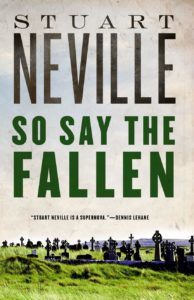
Stuart Neville
Neville first came to my attention with his revenge noir The Ghosts of Belfast, exploring the lingering wounds of a divided city. His work has since focused on more universal police procedural concerns, including trafficking, migration, domestic violence, a burdened social welfare system, and other contemporary issues. He’s even branched out into the psychological thriller genre, under the pseudonym Halen Beck.
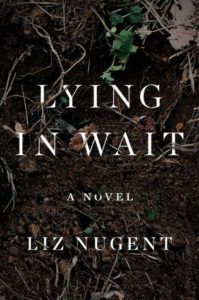
Liz Nugent
Liz Nugent’s work uses seemingly random acts of shocking violence to explore a rot that extends far below the surface. In Nugent’s Unraveling Oliver, a well-respected community member and seemingly loving husband attacks and nearly kills his wife, with domestic violence used as a symbol for both contemporary feminist issues and the Highsmith-esque psychopathy that lurks within anyone overly concerned with normality. Her next book, Lying In Wait, comes out this summer and promises to be just as…unsettling.
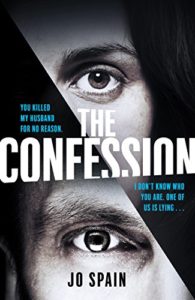
Jo Spain
Jo Spain writes a detective series and standalone psychological thrillers, many of her plots concerned with Ireland’s past, and gender and class divisions within Irish society. She’s written about the Magdalene laundries, inspired by stories from her own family history, and drawn inspiration from a variety of real-life stories.
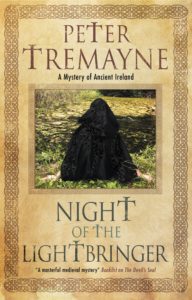
Peter Tremayne
If you like to celebrate Saint Patrick’s Day by googling high-res images of the wondrous Book of Kells, give Peter Tremayne’s Sister Fidelma series a try. Set in 7th century Ireland in one of the cultural centers of the Early Middle Ages, Tremayne’s series features a monk-and-nun crime-solving duo, and richly illuminates (get it?) Ireland’s early medieval world.

